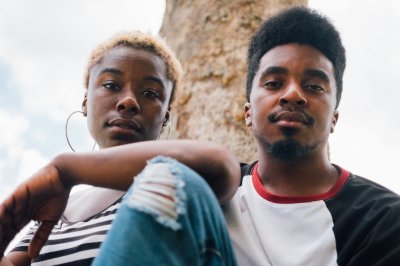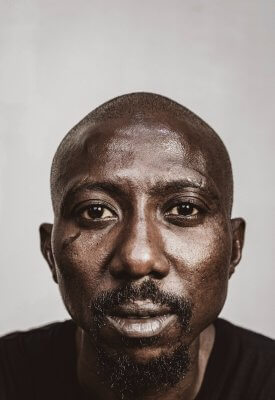Black Mental Health – It’s Time We Started Talking

photo by Joshua McKnight for Pexels
by Claudia Cole
What are the issues we all need to start talking more about when it comes to black mental health?
Higher need, yet less referrals
Research shows that the Black community suffers from more mental health challenges, yet black clients are less likely to be referred on for treatment and support.
According to a government survey, Black adults are almost five times more likely to be detained under the Mental Health Act than any other ethnic group.
Black women in the UK experienced a higher rate of common mental health conditions, such as anxiety and depression. And Black men are ten times more likely to experience psychosis.
And yet other research shows, for example, that Black patients from African and Caribbean backgrounds with bipolar disorder or psychosis being less likely to be referred for cognitive behavioural therapy (CBT) than white patients.
Racism and mental health
Often, race-related stressors play a fundamental part in a Black person’s reality. This can negatively impact their mental health.
Research shows that regular exposure to racism is associated with symptoms of depression and anxiety.
This can overlap with other factors, such as social disadvantages, increasing the risk of mental health problems. And yet all this is not often taken into account when mental health professionals are formulating treatment plans.
How are the experience and outcomes of care different?

photo by David Kuko for Pexels
Even when receiving mental health care, the overall experience for Black and ethnic minority groups was considered more negative than positive.
In a review commissioned by the NHS Race and Health Observatory, there was evidence of Black individuals receiving harsher treatment in inpatient wards. This often involved using physical restraints or being put in seclusion, making patients feel unsafe.
Barriers to black mental health care
While we all have the right to receive care and treatment for our mental health, Black and minority ethnic people may face additional struggles that can affect getting the help they need. What are these potential barriers?
1. Inability to recognise mental health problems.
Some individuals are unable or unwilling to recognise symptoms of mental health problems. It may not be something that’s openly spoken about in their community due to the stigma attached, or because of cultural beliefs. As a result, seeking support may be delayed, often to just before the point of crisis.
2. Racial stereotyping and discrimination.
Ongoing racial stereotypes could influence attitudes and treatment decisions towards people from minority backgrounds.
For example, Black women have been widely depicted as ‘being strong.’ This perception can lead to their feelings being dismissed or not taken seriously by professionals. Similarly, Black men face a stereotype of their own. They have historically been depicted as violent and dangerous, leading to the use of more restrictive care.
3. Lack of trust for the system.
As highlighted in the Ethnic Equalities in Healthcare review, some individuals distrust mental health professionals over the fear of racist treatment. This can lead to large delays or even avoidance in seeking mental health support.
4. Lack of context around black mental health.
In some cases, the experiences and concerns of black individuals are overlooked when being assessed and diagnosed as there is more emphasis on symptoms than context.
For instance, antidepressants might be a recommended option for treating symptoms of depression. Even though it can be beneficial, some may not find this form of treatment useful alone, as it doesn’t help if on a daily basis they are facing poverty and/or racial discrimination.
Why therapy might be seen as a problem

photo by Alex green for Pexels
For many marginalised people, this lack of context can make therapy come across as a temporary fix to their very real daily problems. Or even leave them feeling they are being blamed for having such problems.
Psychologist and writer Dr. Sanah Ahsan points this out in a Guardian piece on society’s flawed perspectives on mental health. She argues
“It is here that we fail marginalised people the most… Black people’s understandable expressions of hurt at living in a structurally racist society are too often medicalised, labelled dangerous, and met with violence under the guise of ‘care’.”
Are mental health professionals informed?
Another challenge Black people face in therapy is lack of cultural understanding by mental health professionals, which can interfere with the effectiveness of talk therapy.
According to a research review, Black and ethnic minority people often struggle to be understood, with a few participants expressing their annoyance with having to explain “the Black experience.”
It does not help that if someone is offered therapy on the NHS they are not allowed to choose which therapist they work with but are allocated someone. While some areas of the UK have NHS branches who recognise the issue and offer a Black and minority ethnic service (BAME), this is not always the case. And not everyone can afford the luxury of private therapy where they can control who their therapist is.
What is cultural competence, and can it help?
Cultural competence is the ability to acknowledge and understand cultural differences, allowing therapists to meet the needs of their patients of all backgrounds. It is an approach to care where race, ethnicity, and beliefs are respectfully taken into account. A culturally competent therapist will be familiar with these subjects and can help address any issues in a way that’s comfortable for you.
Building a relationship with your therapist and feeling understood is important in therapy. The topic of race is delicate yet necessary. Seeing a cultural competence therapist can make it easier, allowing you to become more open about your feelings and experiences.
What should I do if the support is not working out for me?
When it comes to treatment and support, it’s important to know that your concerns deserve to be heard. If you’re having difficulty developing a good relationship with your therapist, or their approach doesn’t suit you, it’s worth expressing your thoughts so they can improve and adapt their service. Otherwise, talk to your referrer, as there might be other options that could be more effective.
What matters is seeking support over suffering in silence. This does not always have to look like one-on-one therapy. Others find support groups helpful, or community groups supporting each other with Black mental health.
Helpful resources for black mental health
- Bayo is an organisation focused on sharing black mental health collectives, organisations and services across the UK.
- Black Minds Matter is a charity connecting Black individuals and family to free mental health services.
- Mind UK’s Black young men program is a free three-year program for 11 to 30 year olds.
 Claudia Cole is a London-based mental health writer and advocate.
Claudia Cole is a London-based mental health writer and advocate.




